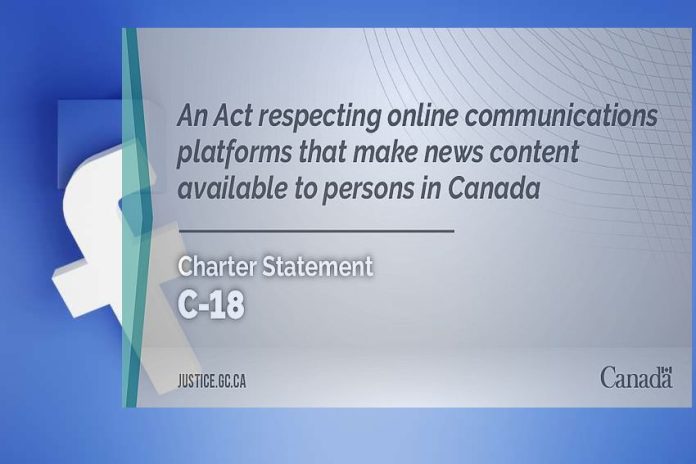By Quinton Amundson
MONTREAL, Canada, (The Catholic Register) – As Meta, the parent company of Facebook and Instagram, began restricting Canadians in August from accessing and sharing news content on its platforms in response to Bill C-18, The Online News Act, it wasn’t only news organizations feeling the effect.
Whether the average Canadian understands or opposes Meta’s response to Bill C-18 – the new law mandates Meta to enter into compensation arrangements with media outlets for content shared or repurposed – the new restrictions are already causing headaches for development and peace.
Mary Durran, the program officer for Haiti, Honduras and Peru on behalf of the Catholic international development organization, detailed in a Facebook post how the new guidelines are hampering the non-profit.
“Thanks Facebook (Meta) for blocking access to key updates on the work of our partners, particularly in Honduras,” wrote Durran on August 21. “Radio Progreso and many of the news items on the page of Fundación ERIC are no longer available, cutting off a key way of keeping in touch with what is going on in the field with us.”
These new restrictions were introduced at an especially inconvenient juncture for development and peace. It is mere weeks away from launching a campaign about the Guapinol community in northern Honduras on September 19. The Canadian bishops’ development agency seeks to spotlight these people who have been threatened for the grassroots resistance they have exhibited toward an iron ore mine built near the Guapinol River. A group of environmental activists called the “Guapinol Eight” has been imprisoned for two years. Several other defenders of the river have been killed in 2023.
“As we near the campaign launch, we need to be in contact and be able to follow the story day by day,” said Durran. “The people at Fundación ERIC don’t have time to email us three times a day or to copy and paste to send information. Facebook was so easy and convenient. And now that is down so we’re working on another solution.”
Durran said her team would receive intel almost in real-time. Now they are hours, if not longer, behind the loop.
Meta’s new policy also received scrutiny from prime minister Justin Trudeau as wildfires raged across British Columbia and Canada’s north. He denounced the tech giant for disabling a quick and convenient way for people to receive information on the fires.
“Right now, in an emergency situation, where up-to-date local information is more important than ever, Facebook is putting corporate profits ahead of people’s safety, ahead of quality local journalism,” said Trudeau. “This is not the time for that”
But not everyone is placing the blame on Meta for the situation. Many lay the blame squarely on the Canadian government for enacting the law in the first place.
“The structure of Bill C-18 assumes that every time someone posts a news story to Facebook, Facebook is making money that they are not sharing with the person or organization who posted it, which is most commonly a news outlet,” said Peter Menzies, a senior fellow at the Macdonald-Laurier Institute and a former vice chair of telecommunications at the Canadian Radio-television and Telecommunications Commission (CRTC). “That case has never been made. It has been repeated. It’s been stated as fact, but I’ve never seen a study or an argument from a news organization that it’s there.”
Menzies expressed disagreement with Trudeau’s premise.
“I think the assumption that people need to go to news organizations to get vital information regarding emergencies and evacuations is false and old-fashioned,” said Menzies. “There was a time when that was the case. In the world of the Internet, all the emergency organizations, government officials, NGOs, the Red Cross – they all have their own websites. People continue to have access to those, and that is the most vital information they can get instead of the info that comes through the filter of a news organization.”
Pete Baklinski, the director of communications for Campaign Life Coalition, also says the Trudeau government “are squarely to blame” for the new landscape as Meta and Google made its intentions known “while the legislation was being crafted that they would cease hosting Canadian news links on their platforms if the legislation passed.” While Bill C-18 “will certainly stifle pro-life-and-family news originating in Canada on social media channels,” said Baklinski, Campaign Life is encouraging supporters to sign up for direct email communications.
A question worth asking is if Canadians will miss the ability to share and read news links? Menzies said he has seen many Facebook and Instagram users quickly acclimatize and some outright welcome the termination of news content. In recent years, every news story under the sun has been capable of inspiring vitriolic exchanges in the comment sections.
Google is expected to respond to Bill C-18 before the bill comes into effect on December 22, 2023, six months after it attained royal assent.





